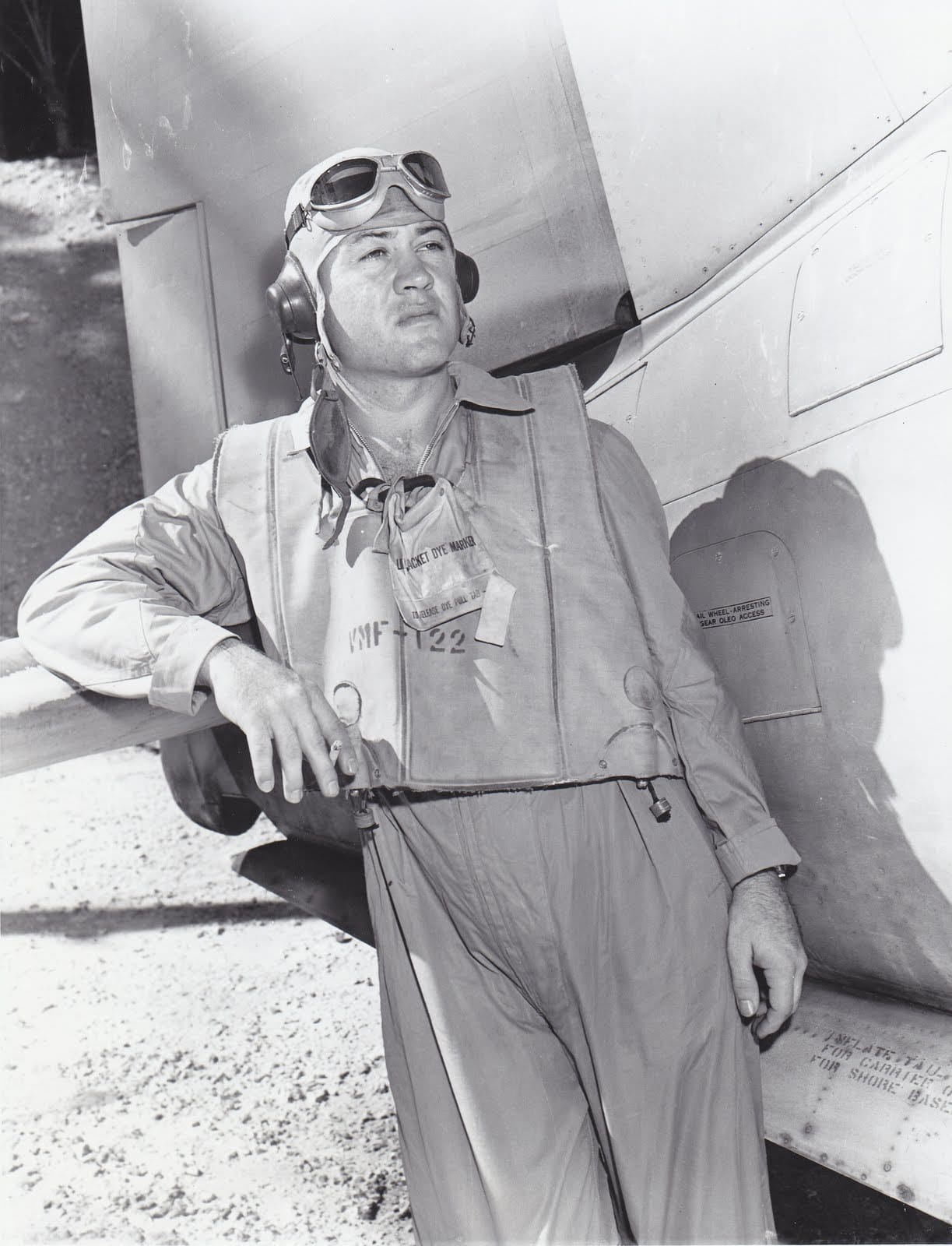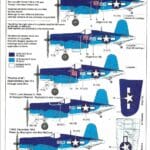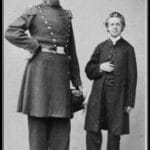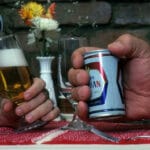Embark on an exhilarating journey through the life of Gregory “Pappy” Boyington, the celebrated fighter ace who commanded the unforgettable Black Sheep Squadron. Delve beyond the heroic tales to uncover the captivating individual behind the legendary persona. Unravel the myths, explore the untold stories, and discover the authentic Pappy Boyington and his iconic Black Sheep.
The Making of a Legend
Born in 1912, Greg “Pappy” Boyington’s fascination with aviation took flight at an early age. This passion led him to the Marines in 1935, where his natural talent in the cockpit propelled him through the ranks.
War Hero and Unconventional Leader
World War II saw Boyington thrust into the heart of the action. Initially flying with the famed “Flying Tigers” in China, he eventually returned to the Marines to lead VMF-214, a squadron dubbed the “Black Sheep.” This unconventional group, comprised of pilots who defied the norm, found their stride under Boyington’s command, becoming a formidable force in the Pacific theater. Boyington’s leadership, though unconventional, proved remarkably effective, transforming the “Black Sheep” into a highly successful unit. Together, they achieved a remarkable number of victories, with Boyington himself credited with downing 28 enemy aircraft.
[Did you know that the 4th Earl of Bothwell, James Hepburn, was one of the most controversial figures in Scottish history? Or that Greg Boyington, the legendary Marine fighter ace, was credited with shooting down 28 enemy aircraft during World War II? Click the links to explore their fascinating stories.]
A Legacy Forged in Courage
Boyington’s journey was not without its turbulence. Known for his strong personality and struggles with alcoholism, he sometimes clashed with authority. However, his courage and unwavering dedication to his squadron earned him the Medal of Honor.
The enduring fascination with the “Black Sheep” Squadron can be attributed to their underdog narrative. Led by the charismatic Boyington, they embodied the spirit of resilience, demonstrating that even those considered misfits can achieve extraordinary feats with determination and strong leadership.
Greg “Pappy” Boyington’s legacy is etched in aviation and military history. He was a skilled aviator, a daring leader unafraid to challenge conventions, and above all, a man of indomitable spirit. Despite his personal battles, he is remembered as an emblem of courage, an enduring testament to the potential that lies within the human spirit.
Pappy Boyington’s Kill Count: Fact, Legend, and Debate
“Pappy” Boyington’s reputation as a formidable presence in the cockpit is undisputed. This Marine fighter ace, renowned for his audacious spirit, rose to legendary status during World War II, largely due to his awe-inspiring aerial prowess. At the helm of the legendary “Black Sheep” Squadron, VMF-214, Boyington and his team amassed victories that secured their place in Marine Corps history.
When it came to aerial combat, Boyington was in a league of his own. Officially credited with 26 aerial victories, he ranks among the highest-scoring Marine aces of the entire war. This tally includes both solo kills and victories shared with his fellow pilots. However, the intrigue surrounding Boyington’s combat record doesn’t end there. Some sources suggest he may have achieved an additional kill – a potential 27th victory that would further solidify his legendary status.
The ambiguity surrounding this final kill adds another layer of complexity to Boyington’s story, highlighting the challenges of accurately documenting every victory amidst the chaos of war. Some historians believe that attributing a 27th victory to Boyington might be an overstatement, while others suggest that available evidence supports this claim.
However, it’s crucial to remember that Boyington’s impact extends far beyond a simple kill count. His true legacy lies in his exceptional leadership qualities. He possessed an innate ability to inspire his men, earning their unwavering loyalty. Moreover, his leadership transcended the battlefield. Boyington consistently advocated for his pilots, ensuring their well-being and that they received the recognition they deserved.
While the precise number of Boyington’s aerial victories may forever remain a subject of debate, one thing is certain: “Pappy” Boyington was a true American hero – a skilled aviator, an instinctive leader, and a man deeply devoted to his fellow Marines.
Black Sheep Squadron: Separating Fact from Hollywood Fiction
The popular television series “Baa Baa Black Sheep,” later renamed “Black Sheep Squadron,” captivated audiences with its portrayal of the legendary VMF-214 squadron during World War II. However, like many Hollywood productions inspired by real events, the show took creative liberties, blurring the lines between historical accuracy and dramatic license.
A prime example is the portrayal of the “Black Sheep” themselves. On screen, they were often depicted as a lovable, albeit rebellious, group of rogues, constantly pushing boundaries and stirring up trouble. The reality, however, was quite different. VMF-214 was composed of highly skilled and experienced pilots, representing the elite of the Marine Corps aviation.
Intriguingly, Pappy Boyington himself served as a consultant on the show. He candidly acknowledged the show’s fictionalized approach, stating that the only character accurately portrayed was, in fact, himself. The real squadron even bore a much grittier nickname than the family-friendly “Black Sheep.” Known as “Boyington’s Bastards,” their true moniker reflects a rawer, less polished image than the one presented on television.
While “Baa Baa Black Sheep” may not be entirely historically accurate, it successfully captured the essence of adventure and bravery that defined VMF-214’s service. The show serves as a reminder to approach historical fiction with a discerning eye, recognizing that entertainment value sometimes takes precedence over strict adherence to facts.
Pappy Boyington’s Afterburn: From War Hero to Post-War Struggles
Upon his return home in 1945, Pappy Boyington was rightfully hailed as a national hero. With 28 confirmed aerial victories and the prestigious Medal of Honor to his name, he embodied the courage and sacrifice of the Greatest Generation. However, like many veterans, Boyington found the transition back to civilian life a turbulent flight path. The adrenaline rush of aerial combat and the camaraderie of his squadron were absent, leaving a void that proved difficult to fill.
Despite his public triumphs, Boyington privately grappled with inner demons, most notably alcoholism. His personal life was equally tumultuous, marked by four marriages that ultimately ended in divorce. The war, it seemed, had left an indelible mark, casting a long shadow over his personal life.
Despite these challenges, Boyington’s capacity for compassion and understanding shone through. In a testament to his ability to transcend the wounds of war, he formed an improbable friendship with Masajiro “Mike” Kawato, the Japanese pilot who claimed to have shot him down. This bond, forged years after their fateful encounter in the skies, speaks volumes about Boyington’s character and ability to find common ground with a former enemy.
Pappy Boyington’s story is a poignant reminder that the true measure of a hero extends beyond battlefield accolades. It lies in the strength to confront personal struggles, the grace to forgive, and the capacity to build bridges of understanding in the aftermath of conflict.
- Discover Long Black Pepper: Flavor & Health Benefits - April 25, 2025
- Shocking Twists: The Grownup Review: Unreliable Narration - April 25, 2025
- A Quiet Place Book vs Movie: A Deep Dive - April 25, 2025
















